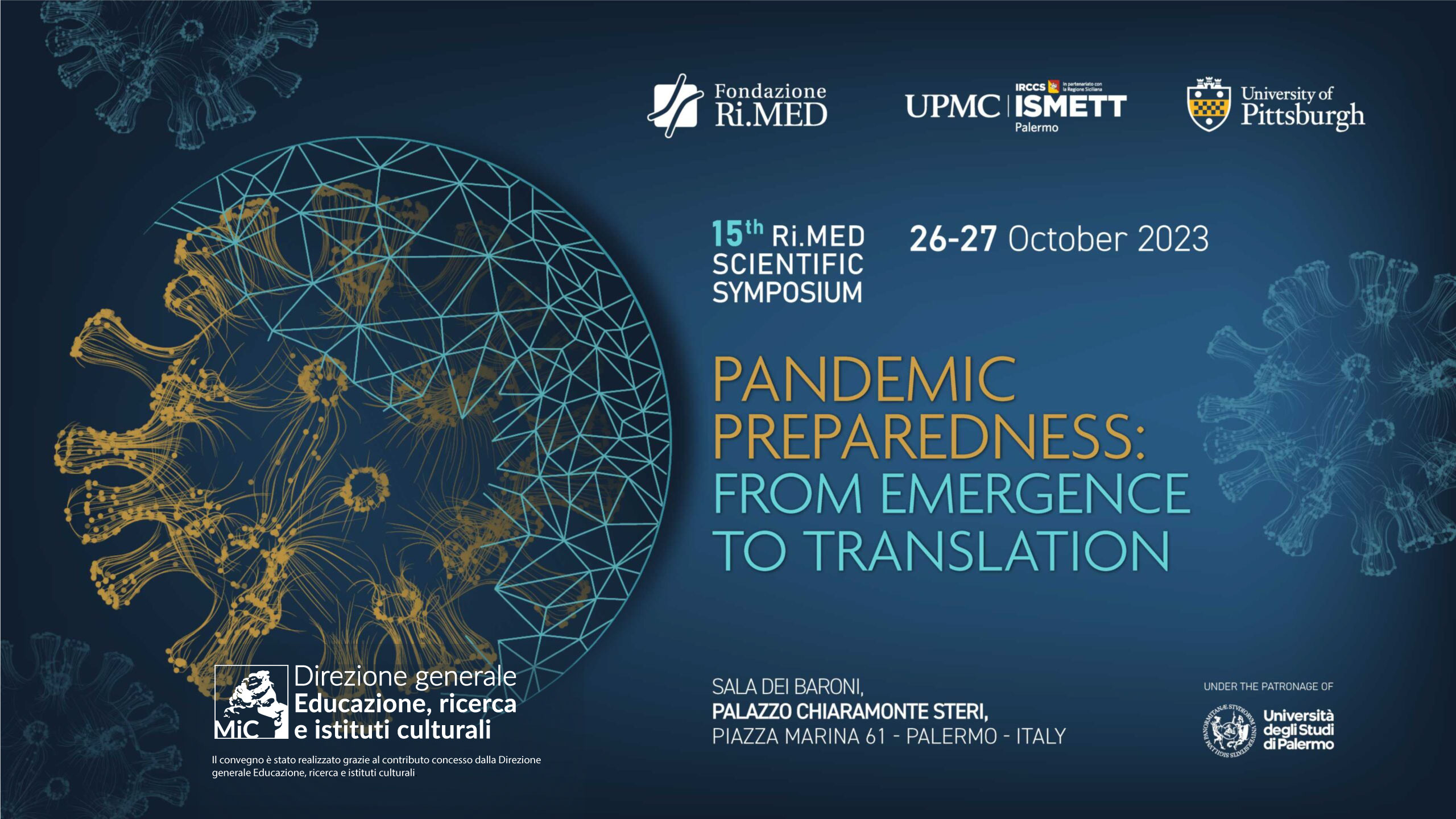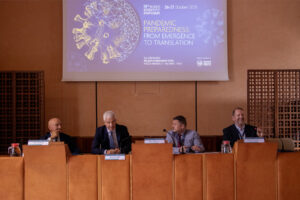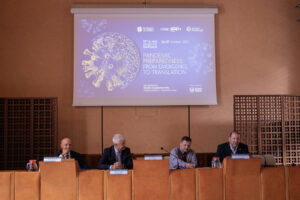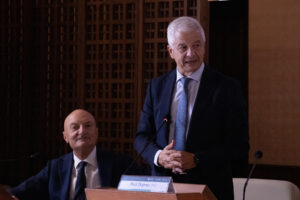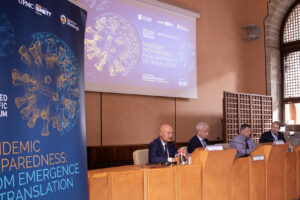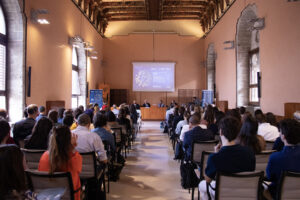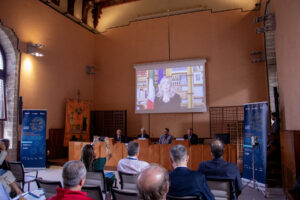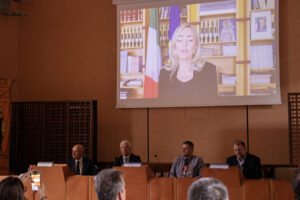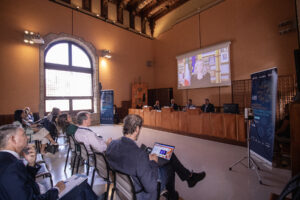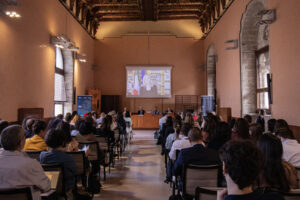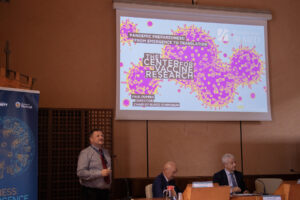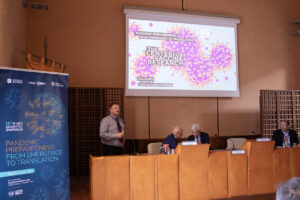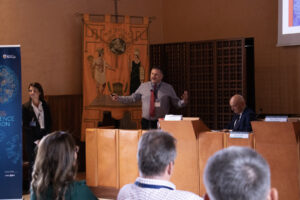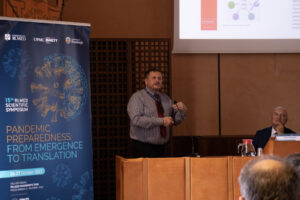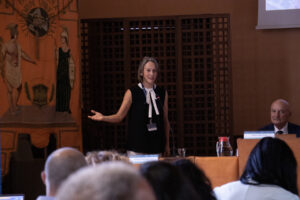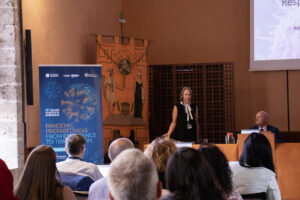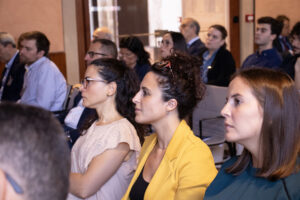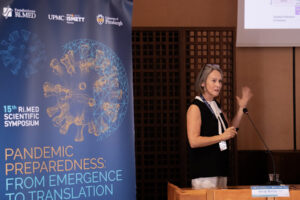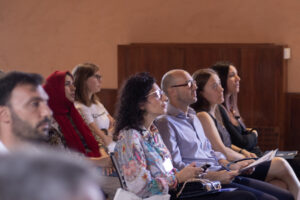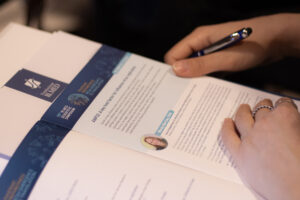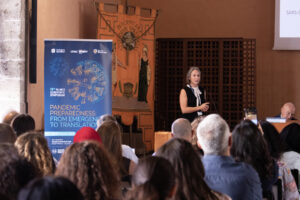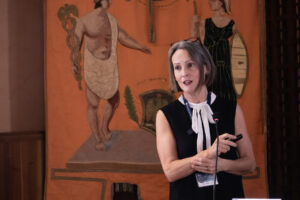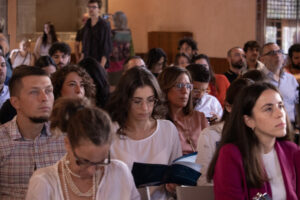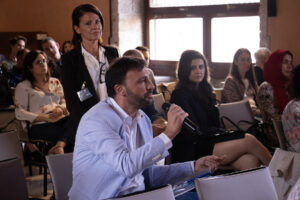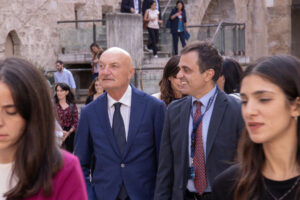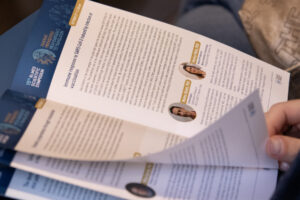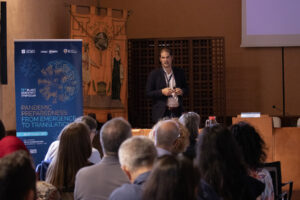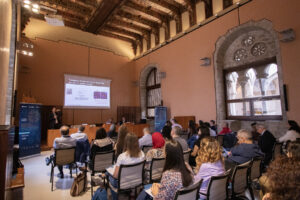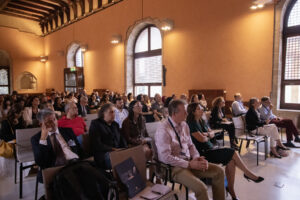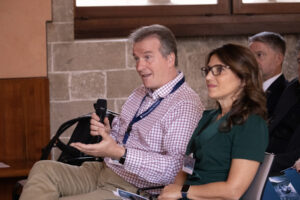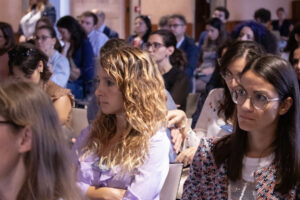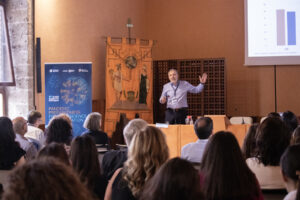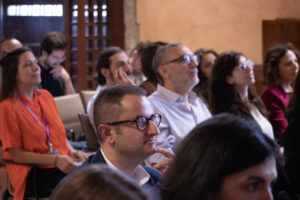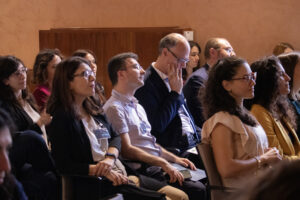The last three years have clearly illustrated how devastating infectious diseases can be on both health and social infrastructure. Despite rapid emergence of remarkably effective vaccines against COVID-19, it is clear that we need to be better prepared for the next pandemic. We are fortunate to have gathered leading experts from Italy, Europe and the USA to address the role that current and emerging infectious agents, and the development of effective vaccines and therapies have on pandemic preparedness.
The 15th Ri.MED Scientific Symposium entitled “Pandemic Preparedness: from emergence to translation”, took place in Palermo, Sala dei Baroni, Palazzo Chiaramonte Steri, Piazza Marina on October 26th and 27th, 2023.
Chair of the Symposium was Prof. Paul Duprex, Director of the Center for Vaccine Research and Professor of Microbiology and Molecular Genetics, University of Pittsburgh School of Medicine. Activities related to scientific dissemination and sharing of research results are part of the Foundation’s own missions. This, in particular, finds space and strength in the ever-widening network of collaborations and scientific agreements that Ri.MED develops with sector bodies and institutions. Aim of the Symposium is to bring together in Palermo, every year on a different and specific research focus, the major international experts to create a unique opportunity for debate and comparison on scientific innovations, thus enriching the competitiveness of the entire territory.
Various related topics were explored during the three sessions: PATHOGEN EMERGENCE: Wendy Barclay introduced us to the emergence of not just SARS-CoV-2 but also drawing parallels and highlighting the differences between SARS-CoV-2 and influenza. She set the scene for Felix Drexler, who studies viral ecology with a view to predicting pathogen emergences, and Massimo Palmarini, who has worked for many years understanding the human-animal interface.
IMMUNE SYSTEM RESPONSE: Alessandro Sette guided us through the complex interplay between the pathogen and the immune system of the host they infect. His laboratory is defining epitopes that the immune system recognizes to measure and understand immune responses: how the body successfully battles infection and conversely, how the pathogens, causing the individual to succumb to disease. Miles Carroll discussed how the analysis of human naive and memory T cell repertoires and high throughput cellular screening of human T cell libraries can be used to dissect the human T cell response to pathogens. Maria Grazia Pizza focused on Ebola virus, a pathogen
of high consequence which continues to emerge in many parts of the world.
PANDEMIC PREPAREDNESS: the final knot to be untied was how to disease mitigation and rapid response to emerging infectious diseases. Rino Rappuoli has pioneered genomic approaches to vaccine development known as reverse vaccinology and led the development of a slew of viral and bacterial vaccines. He provided
an overview of how the field is changing and a deep dive into his latest vaccine forays. Monica Miele, dove deep into the immune response against the virus, in particular describing the data related to the study on Sars CoV-2 infected patients admitted to ICU and discuss the data about the immune response in fragile patients, as solid organ transplant recipients, versus immunocompetent healthy donors after vaccination.
COLLABORATIONS THROUGH CONNECTIONS: We harnessed this unique and world class cohort of keynote speakers to gaze into the future in a moderated discussion focusing on the gaps in pandemic preparedness. This was facilitated by Cristina Cassetti, Deputy Director of the American Institute of Allergy and Infectious
Diseases, and by Paul Duprex.
Due to the importance of the topic and the high profile of the invited speakers, the Italian Ambassador to the USA, Mariangela Zappia, sent her greetings for the opening of the Symposium, to demonstrate the strong bond and fruitful collaboration between Italy and USA.
The conference was organized thanks to the contribution granted by the Italian Ministry of Culture – General Directorate of Education, Research and Cultural Institutes

